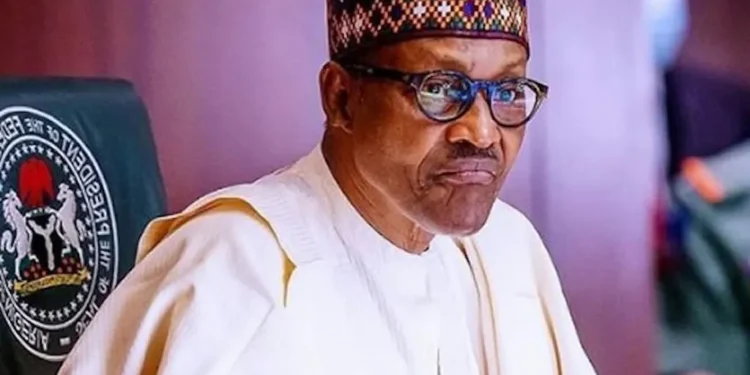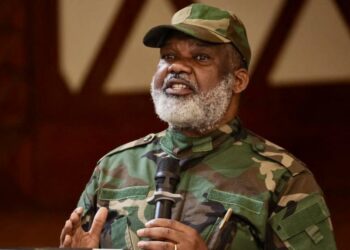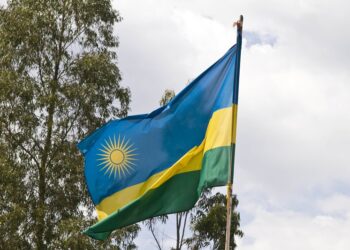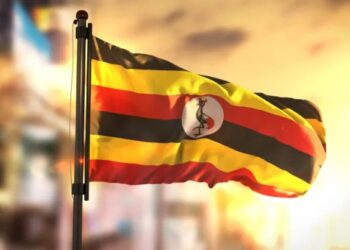Muhammadu Buhari, one of the most prominent political and military figures in Nigeria’s modern history, was a military general who led a coup in 1983 and a civilian president elected for two consecutive terms (2015-2023). During his two periods of military and civilian rule, Buhari embodied complex challenges and achievements in running Africa’s most populous and economically powerful country.
Muhammadu Buhari was born on December 17, 1942, in Daura, Katsina State (present-day northern Nigeria), into a Fulani family. He received his primary and secondary education in Katsina, then joined the Nigerian Military College in Kaduna in 1962. Buhari quickly emerged as a promising officer, continuing his military training at prestigious institutions such as the Mons Military Officer Training Academy in the United Kingdom (1962-1963), Wellington Staff College in India (1973), and the United States Military College (1979-1980).
His early military career saw him participate in major events that shaped Nigeria, including the Nigerian Civil War (1967–1970), where he played a commanding role in the federal forces. Buhari rose through the ranks and positions, holding important leadership positions in the Nigerian Army, including Governor of North-Eastern Nigeria (1975-1976), Federal Commissioner for Petroleum and Natural Resources (1976-1978) under General Olusegun Obasanjo, and Chairman of the Board of Directors of the Nigerian National Oil Company (NNPC) (1978-1979). These early positions gave him extensive experience in managing public affairs, especially Nigeria’s vital oil sector.
On December 31, 1983, Major General Muhammadu Buhari led a military coup that overthrew the elected civilian government of President Shehu Shagari. Buhari justified the coup by citing widespread corruption, economic mismanagement, and insecurity under the civilian government. He assumed the position of head of the Supreme Military Council, thus becoming head of state.
Buhari’s military rule was characterized by a strong focus on discipline, combating corruption, and restoring order. He launched the “War Against Corruption” (War Against Indiscipline—WAI) campaign, which aims to instill moral values, adherence to the law, and the fight against corruption at all levels. His government imposed strict austerity measures to address the economic crisis, including cutting government spending and combating smuggling of goods.
Despite his stated intentions, Buhari’s military rule faced criticism for its authoritarian nature. Strict restrictions were imposed on civil liberties, several former politicians were arrested on corruption charges, and harsh sentences, including the retroactive death penalty, were issued to some drug defendants. Some newspapers were closed, and opposition mouths were silenced. Buhari’s military rule lasted only 20 months, as he was overthrown in another military coup led by General Ibrahim Babangida in August 1985. Babangida justified the coup by saying that Buhari had failed to address economic problems and isolate himself from the people.
After his ouster, Buhari was detained for about three years before being released. During this period, he moved away from the political spotlight but gradually returned to public life with Nigeria’s return to civilian rule in 1999.
Buhari became a prominent voice in the opposition, running for president four times in a row. He ran for president in 2003, 2007, and 2011, losing them all to candidates of the ruling People’s Democratic Party (PDP). Despite his repeated losses, Buhari maintained a strong support base, especially in the north, and gained a reputation as an honest leader committed to the fight against corruption, which became his main slogan. His election campaigns have always focused on fighting corruption, improving security, and reforming the Nigerian economy.
In 2014, the formation of the Progressive Congress Party (APC) was announced as a result of the merger of several opposition parties, with Buhari being one of its most prominent leaders. He was chosen as the party’s presidential candidate in the 2015 elections, in a context in which the country was suffering from the growing influence of the terrorist group Boko Haram, rampant corruption, and declining global oil prices.
In March 2015, Muhammadu Buhari won a historic presidential election victory, becoming the first Nigerian president to oust an incumbent president (Goodluck Jonathan) in a democratic election. His victory marked a turning point, as he promised “change” and focused on three main themes: security, combating corruption, and revitalizing the economy. In 2019, he was re-elected for a second and final term, leading the country until the end of his term in May 2023.
Muhammadu Buhari’s second term ended on May 29, 2023, and he was succeeded by President Bola Ahmed Tinubu. Buhari leaves behind a complex and controversial legacy. For example, he was widely regarded as a symbol of anti-corruption and integrity, and he has sought to instill these values in public administration. However, corruption remains a significant challenge in Nigeria.
Despite some initial successes against Boko Haram, Nigeria’s overall security challenges increased and diversified during Buhari’s tenure, including kidnapping, banditry, and violence between herders and farmers, significantly impacting the lives of millions. The country faced significant economic difficulties and was unable to achieve the sustained growth needed to meet the needs of its growing population, leading to deteriorating living standards for many Nigerians.
Some critics accused Buhari’s administration of regional and ethnic bias, particularly in government appointments, which undermined national unity in a multi-ethnic and multi-religious country. To his credit, he did not seek to extend his term and respected the constitution by peacefully transferring power to his elected successor, thus strengthening democratic institutions in Nigeria.
Buhari died in a London clinic on 13 July 2025 at the age of 82. On 15 July 2025, his remains were sent to Nigeria on a Nigerian presidential plane, arriving at Omar Musa Yar’Adua International Airport in Katsina. He was buried in his home in Daura, Katsina State, in accordance with Islamic principles. A televised state funeral and official burial were held for him, attended by his successor and Nigerian President, Paula Tinubu, as well as many Nigerian officials, politicians, and current and former heads of state and government from Guinea-Bissau and Niger.



























































